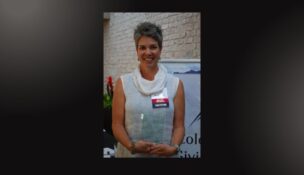Colorado attorneys are using their skills to support the arts
They're doing pro bono work for Colorado creatives
Jamie Siebrase //June 6, 2016//


Colorado attorneys are using their skills to support the arts
They're doing pro bono work for Colorado creatives
Jamie Siebrase //June 6, 2016//
With its 170 diverse members, the 30-year-old Colorado Business Committee for the Arts is all about making connections between the state’s creative and business communities through advocacy, engagement, leadership training and programming — including CBCA’s newest acronym: CAFTA, or Colorado Attorneys for the Arts. CAFTA launched softly last October, after a decades-old nonprofit with a similar aim went defunct, leaving a void for local attorneys who were interested in doing pro bono work for Colorado creatives.
“Working in the arts for as long as I have, I’m very aware of this need,” says attorney Dave Ratner, founder and principal of the Creative Law Network, and chair of CAFTA’s Advisory Committee. “Artists are generally not well compensated in society — yet still need legal services.”
Enter CAFTA, a membership-based legal referral service connecting Colorado artists, creative businesses and nonprofits to a growing group of 40-plus attorneys interested in tackling legal issues ranging from trademark and brand registration to employment disputes – even business-related estate planning.
While most of CAFTA’s member-attorneys are located in the metro area, the organization’s reach has been wide: “This is not just Denver and Boulder,” says Ratner, noting that statewide coverage is “an important piece of the puzzle.”
If not for CAFTA, artists working in communities such as Grand Junction and West Cliff, for example, might not have access to seasoned attorneys specializing in entertainment law. And, adds CBCA Program Manager Meredith Badler, “We’re seeing more artists start up – and succeed – in rural locations thanks to programs like Colorado Creative Industries.”
A division of the Colorado Office of Economic Development, Colorado Creative Industries establishes certified creative districts able to better support resident artists through special funding.
“The goal of this program is to make creative professionals more self-sufficient and successful – because we know that it contributes to cultural tourism and a more desirable way of life,” Badler says.
CAFTA backs that mission not just through its referral service, but also via professional development seminars for both artists and attorneys. And, the new CBCA offering shows serious potential.
“We want to continue to grow,” Ratner says, adding, “We have more attorneys signing up every week.”
LINKS:
CBCA: cbca.org
CAFTA: cbca.org/programs/cafta
Creative Law Network: creativelawnetwork.com

























